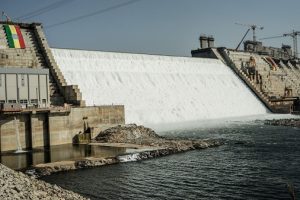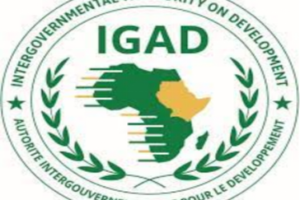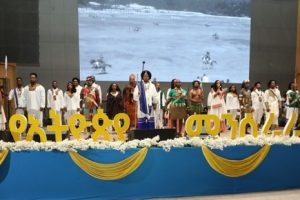BY FITSUM GETACHEW
Elections in Ethiopia are not novice. We have had experience since the days of the last emperor decades ago. There were elections carried out to select representatives for the Lower House of parliament during which days there was also the Upper House as the monarchy tried to copy the system used in Great Britain and to a certain extent Japan. Senators were handpicked by the emperor.
The elections that took place had some form of similarity with the ones we have been trying to carry out ever since. But what is needed to note here is that as we prepare to hold our sixth general election, it is not as if we never had any experience of elections even before the advent of this system now provided for in the Constitution.
What we need to take into serious account is however not the outcome of any election as much as the process itself of carrying out the election. There are now widely accepted and approved of requirements or preconditions in order for elections to be considered free, fair and transparent and hence credible.
First of all, there should be alternatives from where to choose from. That means we need to have ample choice of not only parties or political groups but individuals as well who are capable of representing a certain group interest, a certain platform, a certain ideology and even a certain group of people organized for a cause. The point is that people feel to be represented by individuals or parties that are capable of addressing their day to day life issues, including securing to them services such as health facilities, employment, education and housing, among others. People in general would not like to worry too much about power politics or who is the president or prime minister but they would definitely worry about what kind of life they are made to lead and if there are prospects for their families and the future. That is why having alternatives to choose from becomes crucial.
The other precondition that must be availed by the system must be the rules and regulations by which all candidates need to abide. All parties must put themselves below such provisions so that when in the end a verdict is established, it is binding. Controversies are easily avoided. For that to happen we need to have an electoral commission that would regulate whatever irregularities may occur before, during and after the elections. This is a key issue because it is here that many unresolved controversies arise easily. These could eventually lead to conflicts. It is not unheard of especially in third world countries.
But lately even in the so called advanced democracies, we have seen it occur! There should be no shadow of doubt on the neutrality and independence of the electoral commission and the members of such body should be above partisan politics.
This could refer to the way the selection of candidates and their eligibility viewed against many requirements set by law. For instance people with criminal indictment cannot run for an office. They must be cleared by the judiciary. This is often a thorny issue because when the electoral commissions have disqualified certain parties for their irregular or illegal activities, protests may arise to mar the process. The judgment of the commission must be transparent and legally founded and incontrovertible.
Another important precondition is the use of resources and the way the political platforms are prepared and presented to the public. In other words, where and when are rallies carried out and how is the media used by the various candidates? How do we allocate space and time for those who take part in the election?
The way the campaigns are carried out determines often the outcome of the election because those parties which have more support could avail of extensive resources and this may crush the less fancied parties even if they may have better ideas or policies.
The discussion of the various policies to be implemented once the winning party takes over is fundamental because people who are not well informed may be forced to choose blindly. That is why the candidates must be well presented and challenged by the media operating around the elections in the interest of the population.
All these processes are very important because only when we meet all these criteria can we then settle with the results. The acceptance or not of the results determines the fate of the government and that of the people and country. And that is where we often tend to fail. For this to be implemented we need a strong and independent judiciary so that contested cases can be readily settled in courts. If there are irregularities the courts will have the mandate to investigate and determine the outcome. Here the role of the media is also fundamental because it is up to them to expose any irregularities as they are reported by observers, chosen meticulously by the electoral commission.
Elections must be free and fair because otherwise they become impositions by a certain powerful group and usually this has been more likely with the incumbent. Many African elections have resulted to be controversial because of allegations of irregularities because the incumbent have been accused of abuse of their power and national resources to finance their party and /or affect negatively the manner of conducting the election impartially.
The process of casting votes also gets affected by some irregularities regarding access to where the votes are cast and who actually is facilitated to vote and who is prevented from doing so. The process of casting votes is crucial. Any force may be tempted to take advantage of its privileged position and this may sound natural but there must be clear limits to such advantage. Many times opposition parties have cried foul in this respect. ‘Manipulating’ the election observers is also an issue depending on how they are treated. We have often heard of training given to observers and some are more capable than others. Here as well conditions must be well fulfilled to guarantee the impartiality of observers. In the end their testimony could affect the outcome and its acceptance by the losing sides.
Elections once up on a time and elections now are two totally different realities. Today, with the extensive use of digital technology, there is little space or occasion to falsify or rig elections without being caught or noted. The kind of transparency that the epoch allows for is remarkable and there is practically no means of cheating in elections without being discovered.
The media and those who are meant to observe the elections have multiple means of tracing votes and the way the casting of votes have been carried out. There are certain requirements to be met and there cannot be votes that could be counted twice. People are not able to vote several times as it used to happen in the past. If the preparations are conducted in a transparent and legal manner, the process could not be marred with irregularities.
Ethiopians have been invited to take part in elections several times in the past during all three political systems: the monarchy, the military government and the EPRDF. They have acquired ample experience along the generations and there is pretty little that is not well known by the people of where the flaws could happen.
During the past five elections carried out during the EPRDF regime, there was this systematic abuse of power in preparing the elections and controlling whoever was about to challenge the system. This was quite openly carried out during the famous landmark elections of 2005 when there were more or less democratic elections at least in the pre-election process. Observers then said when there were clear indications that the incumbent was about to suffer a humiliating defeat, it recalled that it had come to power through the barrel of the gun and not through the ballot box, and immediately changed its mind. It practically hijacked the result by not allowing any neutral body from counting the votes nor take part in the process! It was then determined that this was a typical fraud that was committed because in many instances in African elections what takes place in the end is the counting of the votes carried out in a suspicious manner.
The body that is there to safeguard the integrity of the votes is often either seduced by favours or forced by intimidation to change the outcome. Where the opposition is well organized and robust, violence has been inevitable causing extensive damage and loss of lives. That was what Ethiopia experienced in the post-2005 election and the scars of the wounds of those years are still visible.
Many people were very excited by the process that led to those elections but the outcome was tragic and led to the disenchantment of millions of citizens disappointed by the consequences. It was widely reported that once again the country lost the opportunity to transit to a democratic system peacefully!
Unfortunately, most of the political violence that has been taking place in Africa has been determined by ethnic issues rather than political or ideological issues. And that is why many academics in the field say African politics still has a long way to go before it actually joins the democratic systems already in place in several countries. Very recently, even countries such as Ghana, with well established democratic system, have been shaking in the wake of the latest elections! This means Africa is not out of the woods yet even in the more acclaimed democracies!
In our case, the upcoming election will more or less determine which way we can hope to go, and if it takes us to more democratic practice not motivated by above all by frivolous ‘ethnic politics’ or if we once again find ourselves immersed in petty controversies that could cost us our peace, stability and future trajectory of development and progress.
If the process is one that can be relied upon, the result should not be that important; because the choice of the people shall have been respected. It would be of course naïve to expect a perfect system or a perfect election today. But we can try and make it as clean as possible and above all reach the end of the process in a peaceful and legal manner which should not necessarily lead us to violence. We must try and make it a learning process.
Those who lose the elections this time must not be desperate and resort to obtaining victory by all means. As long as it is a process, it is ongoing and there will be another chance in four years’ time provided we can keep the system intact. We must also learn how to settle our differences peacefully sitting around a table and not by using guns! Otherwise, we will always end up beginning from scratch and destroy whatever we may have built up so far.
To expect a perfect election could be utopia but to make as few errors as possible especially in consideration of where we failed in the past will be important. If we do not learn from our past errors, then we may be condemned to repeat them, and no progress obtained. That would really be distressing! That is why we must keep clean as much as we can the process rather than insist on winning by all means!
Here the role of all stakeholders is fundamental. If parties refrain from propagating falsehoods just to appease their supporters, if they fail to calm down their base even in the face of losses, then we would be back to square one and back in the quagmire. No progress can be hoped to be recorded. In a reasonably free and fair election process, no one is a loser. In fact, all of us can consider ourselves winners!
The Ethiopian herald December 17/2020




